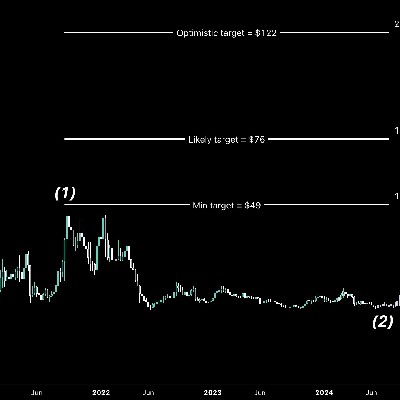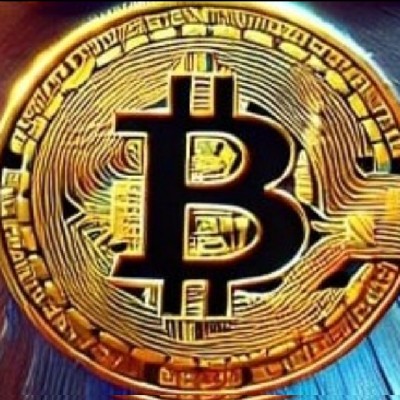Bitget:全球日交易量排名前 4!
BTC 市占率62.04%
Bitget 新幣上架 : Pi
BTC/USDT$103190.00 (+0.01%)恐懼與貪婪指數70(貪婪)
山寨季指數:0(比特幣季)
比特幣現貨 ETF 總淨流量:+$321.4M(1 天);+$2.02B(7 天)。Bitget 新用戶立享 6,200 USDT 歡迎禮包!立即領取
到 Bitget App 隨時隨地輕鬆交易!立即下載
Bitget:全球日交易量排名前 4!
BTC 市占率62.04%
Bitget 新幣上架 : Pi
BTC/USDT$103190.00 (+0.01%)恐懼與貪婪指數70(貪婪)
山寨季指數:0(比特幣季)
比特幣現貨 ETF 總淨流量:+$321.4M(1 天);+$2.02B(7 天)。Bitget 新用戶立享 6,200 USDT 歡迎禮包!立即領取
到 Bitget App 隨時隨地輕鬆交易!立即下載
Bitget:全球日交易量排名前 4!
BTC 市占率62.04%
Bitget 新幣上架 : Pi
BTC/USDT$103190.00 (+0.01%)恐懼與貪婪指數70(貪婪)
山寨季指數:0(比特幣季)
比特幣現貨 ETF 總淨流量:+$321.4M(1 天);+$2.02B(7 天)。Bitget 新用戶立享 6,200 USDT 歡迎禮包!立即領取
到 Bitget App 隨時隨地輕鬆交易!立即下載



Solordi 價格SOLO
未上架
報價幣種:
TWD
數據來源於第三方提供商。本頁面和提供的資訊不為任何特定的加密貨幣提供背書。想要交易已上架幣種? 點擊此處
NT$0.002906-6.03%1D
價格圖表
Solordi價格走勢圖 (SOLO/TWD)
最近更新時間 2025-05-10 18:21:22(UTC+0)
市值:--
完全稀釋市值:--
24 小時交易額:--
24 小時交易額/市值:0.00%
24 小時最高價:NT$0.002783
24 小時最低價:NT$0.002615
歷史最高價:NT$0.4728
歷史最低價:NT$0.0004333
流通量:-- SOLO
總發行量:
1,000,000,000SOLO
流通率:0.00%
最大發行量:
--SOLO
以 BTC 計價:0.{9}9299 BTC
以 ETH 計價:0.{7}3865 ETH
以 BTC 市值計價:
--
以 ETH 市值計價:
--
合約:
J8cKU4...rxz6ax8(Solana)
更多
您今天對 Solordi 感覺如何?
注意:此資訊僅供參考。
Solordi 的 AI 分析報告
今日加密市場熱點查看報告
今日Solordi即時價格TWD
今日Solordi即時價格為 NT$0.002906 TWD,目前市值為 NT$0.00。過去 24 小時內,Solordi價格跌幅為 6.03%,24 小時交易量為 NT$0.00。SOLO/TWD(Solordi兌換TWD)兌換率即時更新。
Solordi價格歷史(TWD)
過去一年,Solordi價格上漲了 -95.88%。在此期間,兌TWD 的最高價格為 NT$0.08110,兌TWD 的最低價格為 NT$0.001980。
時間漲跌幅(%) 最低價
最低價 最高價
最高價 
 最低價
最低價 最高價
最高價 
24h-6.03%NT$0.002615NT$0.002783
7d-5.86%NT$0.002615NT$0.002797
30d+11.58%NT$0.001980NT$0.002831
90d-48.59%NT$0.001980NT$0.005404
1y-95.88%NT$0.001980NT$0.08110
全部時間-89.58%NT$0.0004333(2023-12-22, 1 年前 )NT$0.4728(2024-03-09, 1 年前 )
Solordi的最高價格是多少?
Solordi兌換TWD的歷史最高價(ATH)為 NT$0.4728,發生於 2024-03-09。相較於價格回撤了 99.39%。
Solordi的最低價格是多少?
Solordi兌換TWD的歷史最低價(ATL)為 NT$0.0004333,發生於 2023-12-22。相較於Solordi歷史最低價,目前Solordi價格上漲了 570.56%。
Solordi價格預測
什麼時候是購買 SOLO 的好時機? 我現在應該買入還是賣出 SOLO?
在決定買入還是賣出 SOLO 時,您必須先考慮自己的交易策略。長期交易者和短期交易者的交易活動也會有所不同。Bitget SOLO 技術分析 可以提供您交易參考。
根據 SOLO 4 小時技術分析,交易訊號為 強力買入。
根據 SOLO 1 日技術分析,交易訊號為 買入。
根據 SOLO 1 週技術分析,交易訊號為 賣出。
SOLO 在 2026 的價格是多少?
根據SOLO的歷史價格表現預測模型,預計SOLO的價格將在 2026 達到 NT$0.003755。
SOLO 在 2031 的價格是多少?
2031,SOLO的價格預計將上漲 +35.00%。 到 2031 底,預計SOLO的價格將達到 NT$0.006157,累計投資報酬率為 +109.27%。
常見問題
Solordi 的目前價格是多少?
Solordi 的即時價格為 NT$0(SOLO/TWD),目前市值為 NT$0 TWD。由於加密貨幣市場全天候不間斷交易,Solordi 的價格經常波動。您可以在 Bitget 上查看 Solordi 的市場價格及其歷史數據。
Solordi 的 24 小時交易量是多少?
在最近 24 小時內,Solordi 的交易量為 NT$0.00。
Solordi 的歷史最高價是多少?
Solordi 的歷史最高價是 NT$0.4728。這個歷史最高價是 Solordi 自推出以來的最高價。
我可以在 Bitget 上購買 Solordi 嗎?
可以,Solordi 目前在 Bitget 的中心化交易平台上可用。如需更詳細的說明,請查看我們很有幫助的 如何購買 指南。
我可以透過投資 Solordi 獲得穩定的收入嗎?
當然,Bitget 推出了一個 機器人交易平台,其提供智能交易機器人,可以自動執行您的交易,幫您賺取收益。
我在哪裡能以最低的費用購買 Solordi?
Bitget提供行業領先的交易費用和市場深度,以確保交易者能够從投資中獲利。 您可通過 Bitget 交易所交易。
Solordi持幣分布集中度
巨鯨
投資者
散戶
Solordi地址持有時長分布
長期持幣者
游資
交易者
coinInfo.name(12)即時價格表

全球Solordi價格
目前Solordi用其他貨幣計價是多少?最近更新時間:2025-05-10 18:21:22(UTC+0)
SOLO 兌換 MXN
Mexican Peso
Mex$0SOLO 兌換 GTQGuatemalan Quetzal
Q0SOLO 兌換 CLPChilean Peso
CLP$0.09SOLO 兌換 HNLHonduran Lempira
L0SOLO 兌換 UGXUgandan Shilling
Sh0.35SOLO 兌換 ZARSouth African Rand
R0SOLO 兌換 TNDTunisian Dinar
د.ت0SOLO 兌換 IQDIraqi Dinar
ع.د0.13SOLO 兌換 TWDNew Taiwan Dollar
NT$0SOLO 兌換 RSDSerbian Dinar
дин.0.01SOLO 兌換 DOPDominican Peso
RD$0.01SOLO 兌換 MYRMalaysian Ringgit
RM0SOLO 兌換 GELGeorgian Lari
₾0SOLO 兌換 UYUUruguayan Peso
$0SOLO 兌換 MADMoroccan Dirham
د.م.0SOLO 兌換 AZNAzerbaijani Manat
₼0SOLO 兌換 OMROmani Rial
ر.ع.0SOLO 兌換 SEKSwedish Krona
kr0SOLO 兌換 KESKenyan Shilling
Sh0.01SOLO 兌換 UAHUkrainian Hryvnia
₴0- 1
- 2
- 3
- 4
- 5
購買其他幣種
在哪裡可以購買加密貨幣?
影片部分 - 快速認證、快速交易

如何在 Bitget 完成身分認證以防範詐騙
1. 登入您的 Bitget 帳戶。
2. 如果您是 Bitget 的新用戶,請觀看我們的教學,以了解如何建立帳戶。
3. 將滑鼠移到您的個人頭像上,點擊「未認證」,然後點擊「認證」。
4. 選擇您簽發的國家或地區和證件類型,然後根據指示進行操作。
5. 根據您的偏好,選擇「手機認證」或「電腦認證」。
6. 填寫您的詳細資訊,提交身分證影本,並拍攝一張自拍照。
7. 提交申請後,身分認證就完成了!
加密貨幣投資(包括透過 Bitget 線上購買 Solordi)具有市場風險。Bitget 為您提供購買 Solordi 的簡便方式,並且盡最大努力讓用戶充分了解我們在交易所提供的每種加密貨幣。但是,我們不對您購買 Solordi 可能產生的結果負責。此頁面和其包含的任何資訊均不代表對任何特定加密貨幣的背書認可,任何價格數據均採集自公開互聯網,不被視為來自Bitget的買賣要約。
Solordi評級
社群的平均評分
4.4
此內容僅供參考。
Bitget 觀點

YuppieIOS
1小時前
OBOL Network:Advancing Decentralized Staking Infrastructure For Ethereum
$OBOL Network is revolutionizing Ethereum staking through its Distributed Validator Technology (DVT), which allows multiple nodes to run a single validator collaboratively. This improves fault tolerance, decentralization, and security, reducing reliance on single operators.
Key initiatives include:
Charon, their middleware client enabling node coordination.
The $OBOL Collective and Decentralized Operator Ecosystem (DOE), involving thousands of stakers and organizations.
Support for home and solo stakers, increasing accessibility.
Launch of the $OBOL token for governance and ecosystem incentives.
Partnerships with insurance providers to offer validator risk protection.
Overall, Obol is making Ethereum’s staking infrastructure more decentralized, secure, and inclusive.
OBOL+3.52%
SOLO+2.01%
odogwu123
2小時前
The Impact of $OBOL on Ethereum’s Decentralization Goals
$OBOL Network's core mission and technology are deeply intertwined with enhancing Ethereum's decentralization goals. Here's a comprehensive look at $OBOL's impact:
1. Democratizing Validator Participation through DVT:
* Lowering Barriers to Entry: The 32 ETH requirement for solo staking is a significant barrier for many. $OBOL's Distributed Validator Technology (DVT) enables "squad staking," allowing smaller ETH holders to pool their assets and collectively operate a validator. This democratizes participation in securing the network.
* Permissionless Participation: $OBOL's technology aims to be permissionless, allowing anyone meeting the minimum equipment requirements to contribute to running an Ethereum validator, regardless of the size of their individual ETH holdings.
2. Enhancing Network Resilience and Fault Tolerance:
* Eliminating Single Points of Failure: Traditional staking methods are vulnerable to single points of failure (hardware issues, network outages). DVT distributes validator responsibilities across multiple independent nodes, ensuring that the validator remains operational even if some nodes fail. This increased resilience strengthens the overall stability and security of the Ethereum network.
* Geographic and Client Diversity: DVT facilitates the distribution of validator nodes across different geographical locations and using diverse client software. This reduces the risk of correlated failures due to regional issues or software-specific bugs, contributing to a more robust and decentralized network.
3. Mitigating Centralization Risks:
* Reducing Reliance on Centralized Staking Providers: Centralized exchanges and large staking pools concentrate significant power within the Ethereum ecosystem, posing risks to decentralization and censorship resistance. $OBOL's DVT offers a more decentralized alternative, empowering individuals and smaller groups to participate in validation.
* Promoting a More Distributed Validator Set: By making it easier for a wider range of participants to run validators, $OBOL actively contributes to a more distributed and censorship-resistant validator set on Ethereum.
4. Strengthening Censorship Resistance:
* Distributed Control: With multiple independent operators controlling a single validator through DVT, it becomes significantly more difficult for any single entity to exert censorship. Coordinating censorship across a distributed network of operators with potentially diverse motivations is a substantial hurdle.
5. Community-Driven Governance:
* $OBOL Token Governance: The $OBOL token empowers the community to participate in the governance of the Obol Collective, influencing decisions about the protocol's future and ensuring alignment with the goal of a more decentralized Ethereum.
* Retroactive Funding (RAF): The $OBOL community, through governance, allocates funds to projects that further enhance Ethereum's infrastructure and decentralization.
In conclusion, $OBOL Network plays a crucial role in furthering Ethereum's decentralization goals by:
* Making staking more accessible to a wider range of participants.
* Enhancing the resilience and fault tolerance of the validator network.
* Reducing the risks associated with centralized staking.
* Strengthening censorship resistance.
* Fostering community-driven governance focused on decentralization.
By championing Distributed Validator Technology and building a robust ecosystem around it, $OBOL is actively contributing to a more secure, stable, and, most importantly, decentralized
future for Ethereum.
CORE+0.74%
OBOL+3.52%

Mb_Balami
18小時前
OBOL’s Contribution to Advancing the Cryptocurrency Space
Introduction: As the cryptocurrency ecosystem matures, the demand for more decentralized, secure, and scalable infrastructure continues to rise. OBOL, the native token of the Obol Network, is at the forefront of this evolution, offering a novel solution through Distributed Validator Technology (DVT). This analysis explores how OBOL contributes to the broader advancement of the crypto space, particularly in the Ethereum staking ecosystem.
---
Core Contribution: Distributed Validator Technology (DVT)
Enhanced Decentralization:
OBOL enables multiple operators to control a single Ethereum validator collectively, reducing the centralization risk seen in solo and institutional staking setups.
Fault Tolerance & Security:
DVT makes validators more resilient to failure by distributing responsibility across several nodes. This adds a layer of redundancy that strengthens Ethereum’s overall consensus mechanism.
Infrastructure Support for Ethereum:
OBOL aligns directly with Ethereum's long-term roadmap (post-Merge) by addressing decentralization, validator diversity, and network health.
---
Ecosystem Impact
Staking Accessibility:
By allowing collaborative validator management, OBOL opens the door for smaller stakers and independent operators to participate in Ethereum staking securely.
Cross-Protocol Potential:
While currently focused on Ethereum, the underlying DVT model has the potential to be applied across other proof-of-stake (PoS) chains, expanding OBOL’s relevance and use cases.
Security Layer for L2s & Protocols:
As Layer 2 solutions and DeFi protocols continue to grow, integrating with DVT-secured infrastructure like Obol could become a foundational standard for backend validation.
---
Token Utility and Governance
Governance:
OBOL holders can participate in protocol decisions, helping guide its development and network rules.
Incentives:
OBOL is used to incentivize node operators and ensure alignment between participants, fostering long-term ecosystem health.
---
Challenges and Future Outlook
Adoption Curve:
Widespread integration of DVT across validators and protocols will take time and require educational outreach and seamless onboarding tools.
Competition:
Other staking infrastructure projects are also targeting decentralization and validator security, creating a competitive landscape.
Long-Term Potential:
As Ethereum moves toward greater decentralization, OBOL’s role may become critical—not just as a staking tool, but as a pillar of next-gen validator infrastructure.
CORE+0.74%
OBOL+3.52%

Smith001
20小時前
From Nodes to Narratives: How $OBOL Is Powering the Future of Decentralized Infrastructure
Exploring the Vital Role of Distributed Validator Technology (DVT) in Web3's Evolution
As blockchain matures, decentralization isn’t just a buzzword — it’s the backbone of secure, scalable networks. Obol Network ($OBOL) is emerging as a critical player in this transformation, offering a groundbreaking solution through Distributed Validator Technology (DVT). By reshaping how validators operate, Obol is fortifying the infrastructure that supports Ethereum and the future of Web3.
What Is $OBOL and Why Does It Matter?
$OBOL is the native utility and governance token of the Obol Network — a protocol designed to decentralize the operation of blockchain validators.
Traditionally, validators are managed by a single entity holding all the key responsibilities. Obol flips this model by enabling multi-operator validator clusters that collectively run nodes — enhancing security, resilience, and trustlessness.
Why it matters:
Security-first architecture 🔐
Increased fault tolerance ⚙️
Minimized slashing risks ⚡
Stronger decentralization at the core 🌐
The Core Innovation: Distributed Validator Technology (DVT)
DVT allows validator responsibilities to be split across multiple independent operators, using techniques like multi-party computation (MPC) and threshold signing. These validators only act when a predetermined threshold of operators agree.
Key Advantages of DVT:
No single point of failure ❌
Collaborative decision-making among nodes 🤝
Continuous uptime, even with partial outages 🔁
Reduced attack surface for malicious actors 🛡️
With DVT, validators behave more like resilient collectives than vulnerable individuals.
Obol's Role in Ethereum and Beyond
Obol is especially aligned with Ethereum’s long-term decentralization goals. As Ethereum staking scales post-Merge, the need for infrastructure that resists centralization grows.
Obol’s Integration Potential:
Works with Ethereum staking pools and solo stakers
Supports interoperability across other PoS chains
Acts as a middleware layer for decentralized coordination of validators
Enables secure participation in restaking and modular blockchain ecosystems
Obol is positioned to become a critical infrastructure layer, not only for Ethereum but for any chain requiring validator resilience.
Roadmap and Ecosystem Development
Obol Network is building its ecosystem with a clear and strategic roadmap:
Current & Upcoming Milestones:
Mainnet Deployment (2025) 🚀
Public validator launch tools and SDKs
Strategic partnerships with major staking platforms
Community governance activation via the $OBOL token
Ecosystem incentives to bootstrap operator clusters
Its testnets (like Athena and Alpha) have already demonstrated the technical feasibility and robustness of DVT in live environments.
Why $OBOL Could Be a Pillar of Web3 Infrastructure
In the next wave of Web3 growth, infrastructure decentralization will be key. Centralized staking services and validator monopolies are growing concerns — and Obol offers a direct countermeasure.
$OBOL is more than a token — it’s a protocol-level commitment to:
Validator security
Operational transparency
Network resilience
Collaborative staking
As institutional demand increases, and staking-as-a-service expands, $OBOL could become a foundational tool for anyone seeking trust-minimized validator setups.
Final Thoughts
Obol Network is not just innovating — it’s securing the next chapter of decentralized infrastructure. By enabling validators to act as distributed collectives, it’s building a future where blockchain consensus is both robust and truly decentralized.
$OBOL’s narrative is clear: decentralize the base, empower the network, and safeguard the future of Web3.
This is not just evolution — it's infrastructure redefined.
Keep your eyes on $OBOL — the future of validators may already be distributed.$OBOL
ALPHA-2.74%
CORE+0.74%

La sombra del mercado
23小時前
Una zona de demanda u oferta, por más precisa u “escondida” que sea, no es una validación de cambio de tendencia.
Solo indica que la probabilidad de ver una reacción es alta, pero la confirmación viene cuando la estructura del mercado cambia.
Si quieren stops pequeños y un
SOLO+2.01%
S+0.64%
相關資產
相近市值
在所有 Bitget 資產中,這8種資產的市值最接近 Solordi。
關於Solordi的更多資訊

































